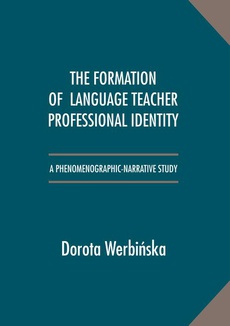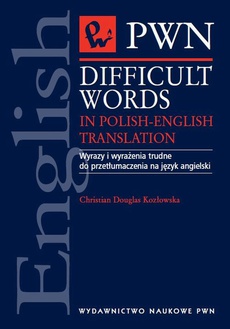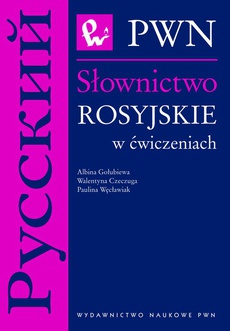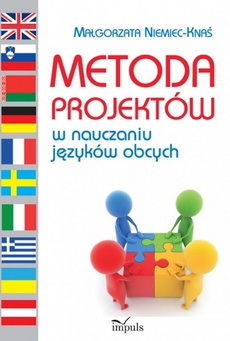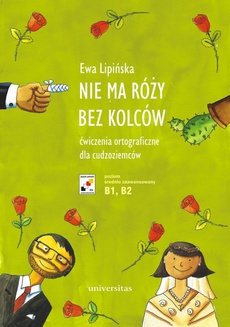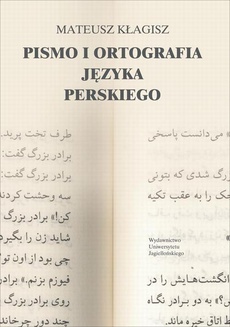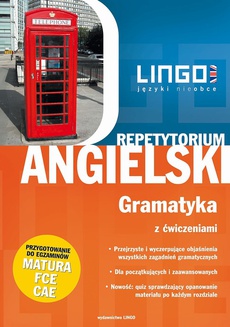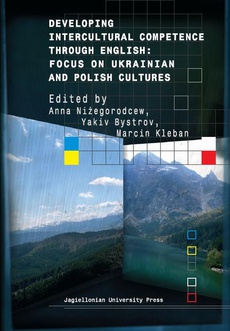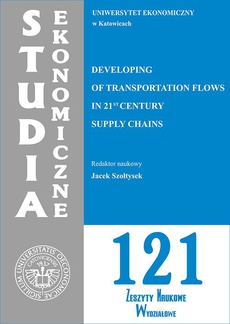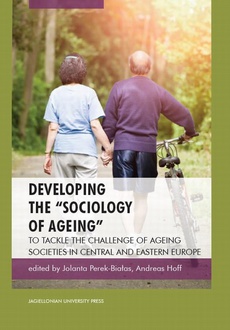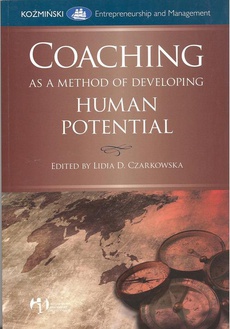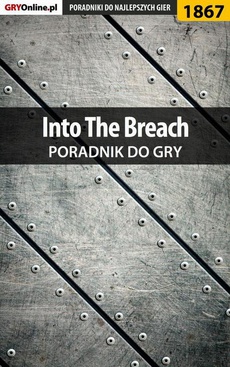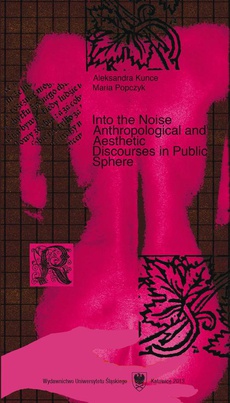INNE EBOOKI AUTORA

-20%
Developing into an effective Polish Teacher of English
Autor:
Format:
pdf, ibuk
The major aim of this work has been to explore the profile of an effective Polish teacher of English ten years ago and now. In particular, it has attempted to determine what competencies or kinds of professional knowledge distinguish this successful professional, as well as what personal teacher theories she seems to hold. In order to accomplish these goals, two interview studies were conducted, one almost a decade ago and the other recently. The results of the analysis of different spheres of an English language teacher’s professional competences may have significant implications for teacher education in Poland, and make it possible to identify these characteristics of the teacher that can foster their effective performance of the job. On a more general level, they also enable us to make some recommendations concerning the optimum preparation of potential candidates for becoming teachers of foreign languages in Poland. Due to the focus of this study, the tentative model to be presented here pertains to a profile of the effective language teacher in Poland. It is also important to keep in mind that the guidelines the present model offers are not necessarily applicable to another context, but to the Polish context at a time when the Polish educational system is still being affected by sweeping institutional and curricular changes.
| Rok wydania | 2011 |
|---|---|
| Liczba stron | 152 |
| Kategoria | Nauka języków obcych |
| Wydawca | Wydawnictwo Naukowe Uniwersytetu Pomorskiego w Słupsku |
| ISBN-13 | 978-83-7467-163-7 |
| Numer wydania | 1 |
| Język publikacji | polski |
| Informacja o sprzedawcy | ePWN sp. z o.o. |
POLECAMY
Ciekawe propozycje
Spis treści
| INTRODUCTION | 9 |
| CHAPTER 1. A REVIEW OF STUDIES ON EFFECTIVE TEACHING | 11 |
| Introduction | 11 |
| 1.1. The beginnings: the concept of good practice | 11 |
| 1.2. The concept of successful teaching | 13 |
| 1.2.1. The behaviourist approach | 13 |
| 1.2.2. The cognitive approach | 14 |
| 1.2.3. The communicative approach | 15 |
| 1.2.4. The humanistic approach | 16 |
| 1.2.5. Current concepts of successful teaching | 17 |
| 1.3. Major studies of effective teachers | 19 |
| 1.3.1. Highet’s qualities of a good teacher | 20 |
| 1.3.2. Good teachers’ characteristics in Okoń’s articles on teacher personality | 20 |
| 1.3.3. Taylor’s study | 22 |
| 1.3.4. Teacher qualities identified by Ryan | 22 |
| 1.3.5. Flanders’ styles | 23 |
| 1.3.6. Bohucki’s study of teacher personality | 23 |
| 1.3.7. Rosenshine and Furst’s correlates of effective teaching | 24 |
| 1.3.8. Pupils’ expectations of teachers – Nash’s study | 25 |
| 1.3.9. Achievement of objectives by effective teachers | 25 |
| 1.3.10. Bloom’s list of effective teachers’ classroom practices | 26 |
| 1.3.11. Ericksen’s essence of good teaching | 26 |
| 1.4. Effective language teacher studies | 27 |
| 1.4.1. Moskowitz’s analysis of outstanding teachers’ behaviours | 27 |
| 1.4.2. A good teacher’s qualities as perceived by young adolescents | 28 |
| 1.4.3. Politzer and Weiss’s research | 29 |
| 1.4.4. Komorowska’s research on factors conditioning success and failure | 29 |
| 1.4.5. Sanderson’s project on good language teachers | 30 |
| 1.4.6. The need for change – Hawley et al.’s research on the effective teacher | 31 |
| 1.4.7. Some contemporary studies of good language teachers | 32 |
| 1.4.8. Effective language teacher studies – a summary | 35 |
| 1.5. Studies of poor language teachers | 36 |
| 1.6. Concluding remarks | 38 |
| CHAPTER 2. A PROFILE OF A LANGUAGE TEACHER’S PROFESSIONAL COMPETENCES | 39 |
| Introduction | 39 |
| 2.1. Linguistic competence | 40 |
| 2.1.1. Language proficiency | 40 |
| 2.1.2. Subject matter knowledge | 45 |
| 2.2. Methodological competence | 47 |
| 2.3. Psychological competence | 49 |
| 2.4. Pedagogical competence | 51 |
| 2.5. Normative competence | 52 |
| 2.5.1. Interactive knowledge | 53 |
| 2.5.2. Causal knowledge | 53 |
| 2.6. Experiential competence | 55 |
| 2.7. Contextual competence | 57 |
| 2.8. General competence | 58 |
| 2.9. Teacher knowledge – a summary | 60 |
| 2.10. Teacher competences vs. human wisdom | 61 |
| 2.11. Concluding remarks | 64 |
| CHAPTER 3. TEACHERS’ PERSONAL THEORIES | 65 |
| Introduction | 65 |
| 3.1. Fundamental concepts and approaches | 65 |
| 3.1.1. A transmission approach | 66 |
| 3.1.2. A constructivist approach | 66 |
| 3.1.3. Teacher Development Approaches | 67 |
| 3.2. Definition of personal theories | 68 |
| 3.2.1. The term | 68 |
| 3.2.2. Definitions of the term | 69 |
| 3.2.3. Teachers’ personal theories: an overview | 74 |
| 3.2.4. Teachers’ personal theories characteristics | 76 |
| 3.3. Sources of teachers’ personal theories | 77 |
| 3.3.1. Teachers’ own experience as language learners | 77 |
| 3.3.2. Personality factors | 78 |
| 3.3.3. Research-based teaching principles | 79 |
| 3.3.4. Principles derived from an approach or method | 80 |
| 3.3.5. Established practice | 80 |
| 3.3.6. Experience of what works best | 81 |
| 3.3.7. Origins of language teacher beliefs – a summary | 81 |
| 3.4. Language teacher beliefs | 82 |
| 3.4.1. Beliefs about language | 82 |
| 3.4.2. Beliefs about curriculum | 83 |
| 3.4.3. Beliefs about learning | 84 |
| 3.4.4. Beliefs about teaching | 85 |
| 3.4.5. Beliefs about the language teaching profession | 93 |
| 3.4.6. Teacher beliefs – a summary | 94 |
| 3.5. Metaphors as an aid to understanding teacher personal theories | 95 |
| 3.5.1. Advantages of metaphor | 95 |
| 3.5.2. Metaphors in teacher beliefs | 96 |
| 3.5.3. Metaphors – a summary | 105 |
| 3.6. Concluding remarks | 106 |
| CHAPTER 4. THE EFFECTIVE FOREIGN LANGUAGE TEACHER – NTERVIEWS | 107 |
| Introduction | 107 |
| 4.1. Selection of teachers for the study | 107 |
| 4.2. The objectives | 109 |
| 4.3. The technique of data collection | 109 |
| 4.4. Analysis of the data | 111 |
| 4.5. Interview | 111 |
| 4.5.1. Interview 1 | 112 |
| 4.5.2. Interview 2 | 116 |
| 4.5.3. ME as an effective teacher: the ‘change’ aspect | 124 |
| 4.5.4. The profile of ME as an effective at present | 133 |
| 4.6. Concluding remarks | 133 |
| FINAL REMARKS AND CONCLUSIONS | 135 |
| BIBLIOGRAPHY | 138 |
| APPENDICES | 149 |

